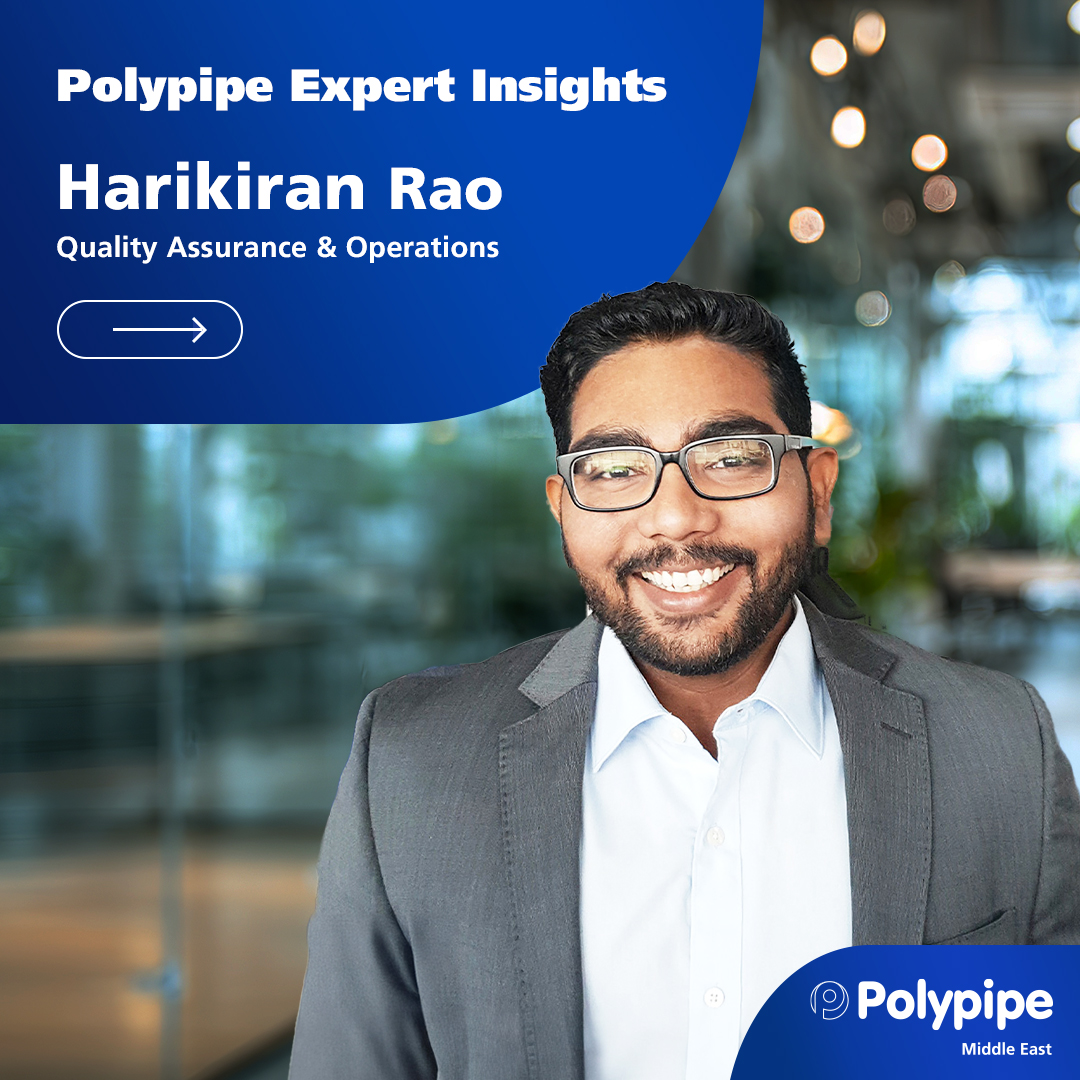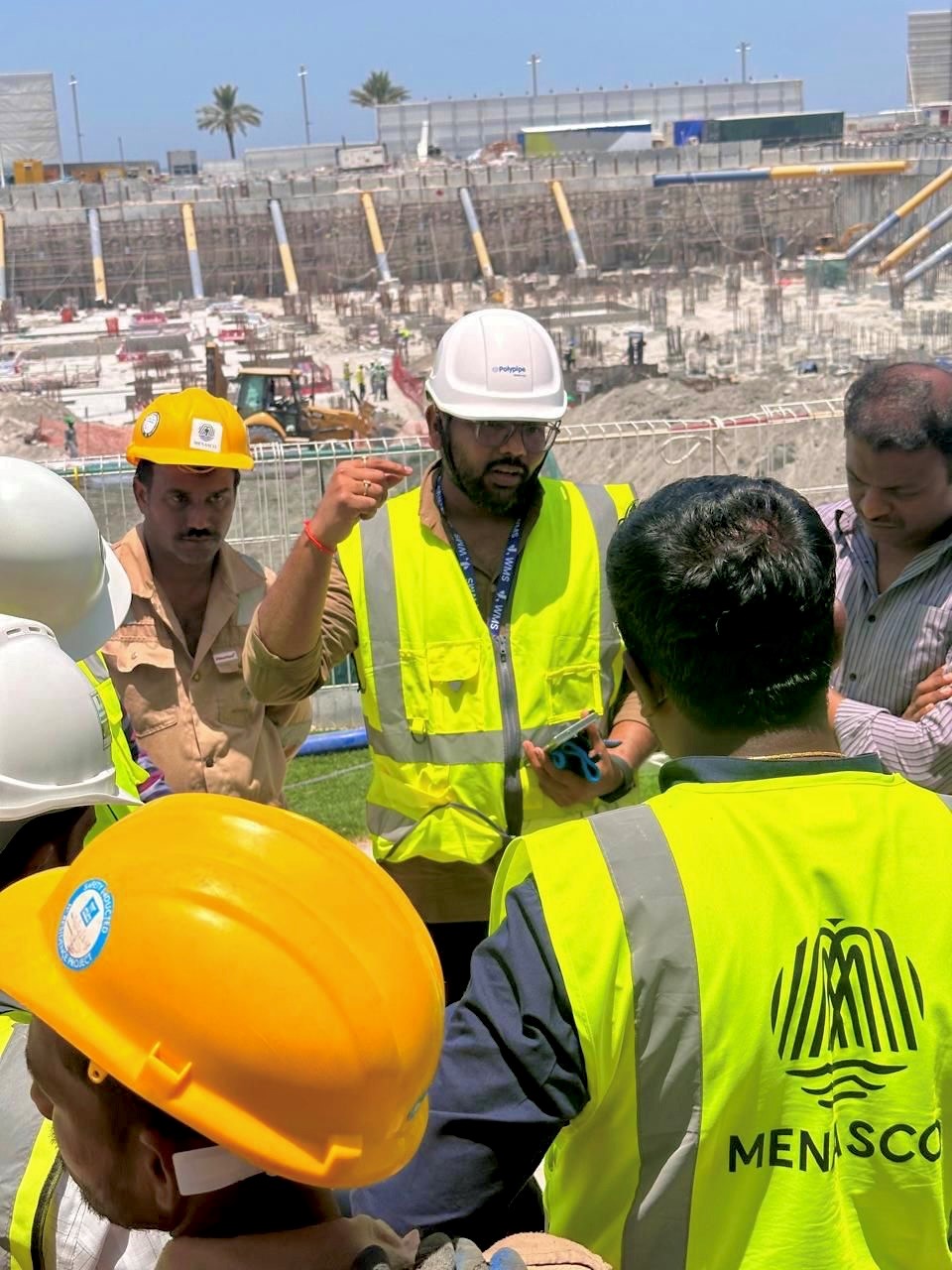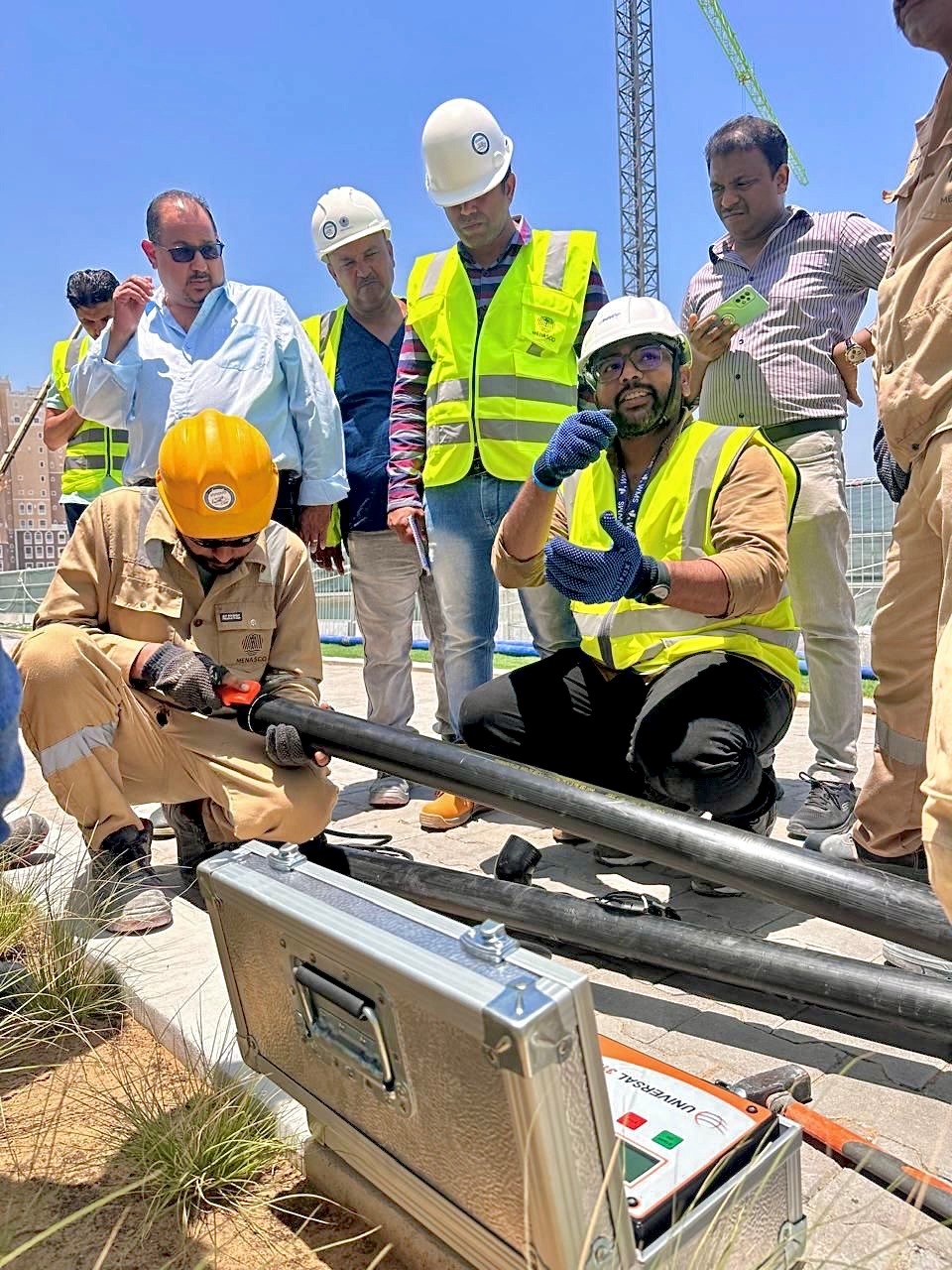Behind the Scenes with Our Quality Assurance & Ops Expert
Monday 25th August 2025

Ever wondered how we keep safety and quality at the heart of everything we do? Here's a quick Q&A with Hari, the person who makes it happen.
1. Describe your role. What are your key responsibilities in quality assurance and operations at Polypipe Middle East?
I lead Quality Assurance & Operations at Polypipe Middle East — making sure every product leaving our floor is engineered to world-class standards, built with precision, and ready to perform for decades.
I oversee quality assurance and operational efficiency across our manufacturing and supply processes. My role involves ensuring that all locally manufactured products — from HDPE Terrain FUZE drainage to geocellular stormwater systems — meet international standards such as BS EN 1519 and CIRIA C680. I manage supplier coordination, material procurement, production scheduling, and compliance audits. I also work closely with our manufacturing partners to implement Lean Six Sigma strategies for continuous improvement, ensuring that we meet On-Time-In-Full (OTIF) delivery targets and maintain stock variance within 5%.
2. How does manufacturing engineered drainage locally benefit our customers and the region?
"Manufactured in the Middle East. Trusted worldwide. Faster lead times, lower carbon footprint, and tailored solutions for the region — that’s the Polypipe advantage."
Local manufacturing allows us to shorten lead times significantly, giving customers faster access to products and reducing project delays. It also minimizes freight costs and carbon emissions by reducing long-distance shipping. By manufacturing within the region, we can respond quickly to urgent requirements, adapt production to market demand, and support regional economic growth by creating jobs and collaborating with local suppliers.
3. What are the main steps you follow to ensure every product meets our standards?
"Every batch is tested. Every detail is checked. From raw material to final product, we follow global standards so our customers get nothing less but the best."
- Material Verification – Only approved virgin-grade materials are used, with supplier batch certificates verified.
- Process Control – Hydraulic injection molding and extrusion parameters are closely monitored and recorded for each production batch.
- In-Process Inspection – Dimensional checks, load-bearing tests, and visual inspections are carried out at defined intervals.
- Final Quality Check – Products undergo physical testing against performance standards (e.g., vertical and lateral load testing for geocells) before release.
- Traceability – Each product is marked with mold numbers, material codes, and production dates for full traceability.
4. How does your facility reduce waste, energy use, or carbon footprint?
"Sustainability isn’t a choice, it’s our responsibility. We optimize energy use and cut freight emissions by producing closer to our customers."
We optimize machine cycle times to reduce energy consumption, and plan production runs to minimize material changeovers. By producing locally, we cut transport-related emissions, and we continue to explore renewable energy options for our facility.
5. Which new technology or process have you introduced to improve manufacturing?
"One-shot injection moulding for large stormwater units is faster, stronger, and more consistent. Innovation is not a department here… it’s our culture."
We introduced a one-shot injection molding process for large geocellular units, reducing the need for assembly and improving structural integrity. This innovation shortened cycle times, reduced handling, and improved consistency in load performance. We also implemented tighter process monitoring for hydraulic injection molding machines, which reduced variability and scrap rates.
6. What key projects or initiatives are you currently working on? Can you share more details on this?
"From pioneering local Polystorm PSM5 manufacturing to securing future-ready supply chains in KSA, we’re building capacity today for the projects of tomorrow."
I’m currently finalizing a manufacturing agreement in KSA to support future Polystorm projects, and we’re developing a new PSM-5 midsection tool to meet high-volume demand locally. This tool was designed and delivered ahead of schedule, enabling faster production ramp-up. Additionally, we are working on sourcing alternative polypropylene grades, such as Borough & Sabic, to reduce dependence on single suppliers and improve supply resilience.
7. How do you measure the impact of your safety initiatives on reducing shop floor hazards?
"World-class products start with world-class safety. Zero compromise. Zero accidents. Every day."
Safety is built into every stage of our operations. We conduct regular toolbox talks, safety drills, and machine guarding inspections. All staff receive H&S induction training, and we maintain strict PPE compliance on the shop floor. Our aim is zero accidents, and we continuously review our processes to identify and eliminate potential hazards.
8. How do you ensure customer feedback directly informs improvements in your delivery and customization processes?
"Our promise: On time, in full, and to the highest standard — every time. That’s why our customers stay with us for the long run. In fact, we haven’t had a single complaint or material return in the past 10 years."
We track customer satisfaction through feedback after every major delivery and project. Thanks to our local manufacturing setup, we’re able to respond quickly to urgent needs, tailor solutions, and consistently achieve high OTIF (On-Time In-Full) performance. This approach has helped us build strong repeat business and lasting client relationships — with zero complaints or material returns in the past 10 years.
9. Where do you see local manufacturing at Polypipe Middle East in the next 3–5 years?
"In the next 5 years, we aim to set the regional benchmark for sustainable manufacturing, automation, and product innovation — redefining what’s possible in water management solutions."
I see Polypipe Middle East expanding its local manufacturing footprint with new production lines, broader product ranges, and increased automation. We will strengthen our sustainability credentials through greener production technologies and aim to become the region’s benchmark for high-quality, sustainable water management and drainage solutions.


